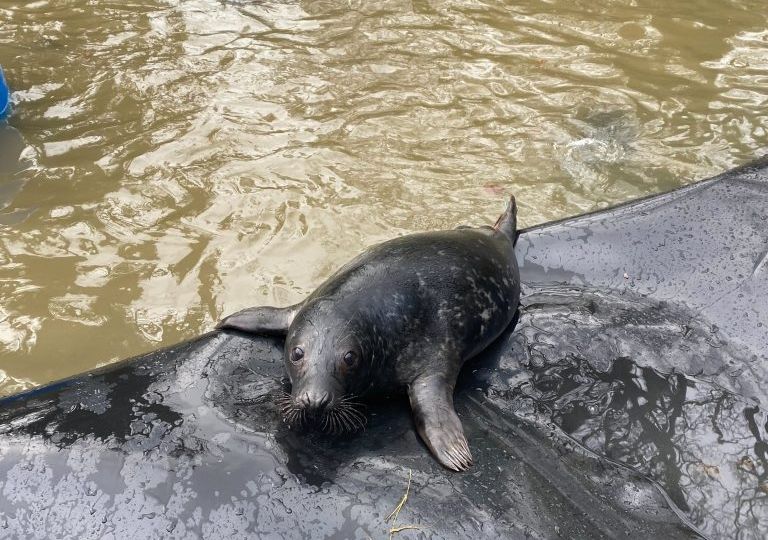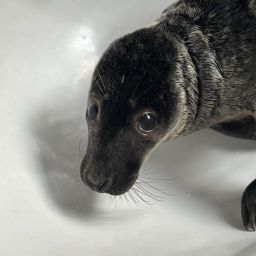
As you know, Culture Co-Working adopted a seal a few months ago in association with the Seal Rescue Ireland organization.
The CEO Andrew Whitaker who loves to cross the world like Indiana Jones, discovers himself the passion of pets. So that is why he naturally wants to invest for an ONG in order to share his good heart ( or in order to giving his time to others) .
Previously, we shared the first update and now lets see how he is growing.
Indeed, when we rescued him from Kilcoole beach, Co. Wicklow on the 28th of September 2024, he weighed approximately 12kg and was 4-6 weeks old, during its intake.
His umbilical area remained open and pink, indicating it had not fully healed. Serpent Star received wound care and was provided with nutrient-rich fish soup to support hydration and help him gain the essential weight needed for recovery.
Wildlife Rehabilitation
Every seal that arrives at SRI does so because its chances of survival in the wild were slim to none. Our team works tirelessly to give these animals a second chance, but wildlife rehabilitation is never without its challenges. Despite our best efforts, some seals face underlying health issues, internal injuries, or congenital conditions that can make recovery uncertain.
The heartbreaking truth is that not every rescued seal will make it to release. While we do everything possible to help them heal, nature can be unpredictable, and not every story has the happy ending we hope for.
As you follow your seal’s journey, we encourage you to keep this in mind. Your support provides them with the best possible care, offering them a fighting chance at survival. Every donation, share, and word of encouragement makes our work possible—and, for many seals, it makes all the difference.
his stay in the intensive care unit
Their Intensive Care Unit (ICU) is a safe and quiet space designed to help sick and injured seal pups recover. It contains six individual crates that protect them from the weather and outside stress.
When a pup first arrives, their Animal Care Team closely monitors its health, checking for injuries, illnesses, or unusual behavior. Most of these pups are underweight and struggle to stay warm because they don’t have enough blubber. To help, each ICU crate has a heat lamp to keep them at a comfortable temperature between 34.5°C and 37.5°C.
Seals and their whiskers
Seals whiskers are ones of the most important aspects for surviving by themselves in the ocean. Indeed, thanks to their whiskers called “vibrissae”, they can detect the movement and vibration (of the water) of fish and their prey, which makes hunting a lot easier. These vibrissae can be compared to fingertips. The only difference between them is, that these vibrissae are more sensitive.
Fish School
When Blacky came to our care, he was already the right age to hunt for himself, because of the mother normally being absent way more. we had to teach him these hunting skills. By putting him in a tub of water mixed with salt and a fish on the opposite side of him, he needed to rely on his developing hunting instincts. This trained and improved his hunting skills, without putting him in much danger.
Diving skills
Even though seals spend 70% of their life outside the water, they love swimming. During a dive seals close their nostrils and let their lungs collapse to compensate the high pressure underwater. Seals can dive up to 70 meters deep and stay underwater for 5 to 15 minutes. Seals also have a short recovery period between each dive.










